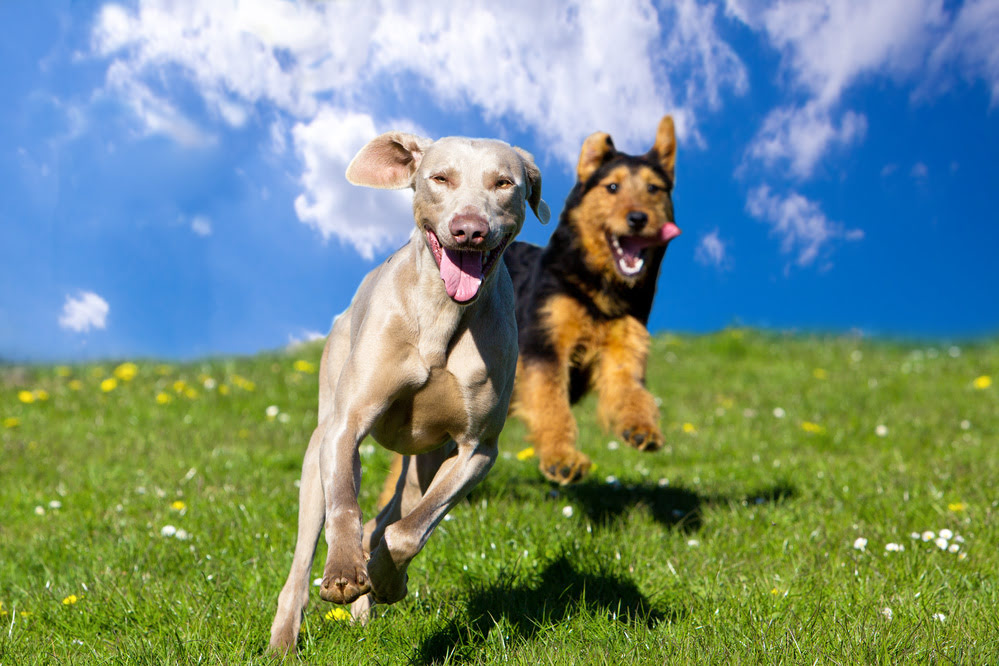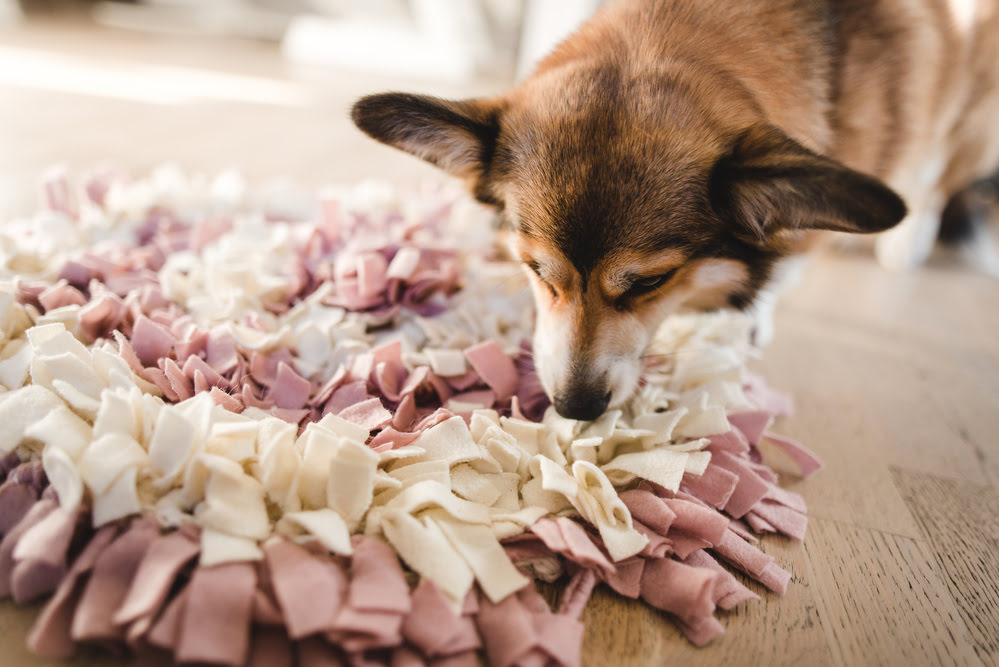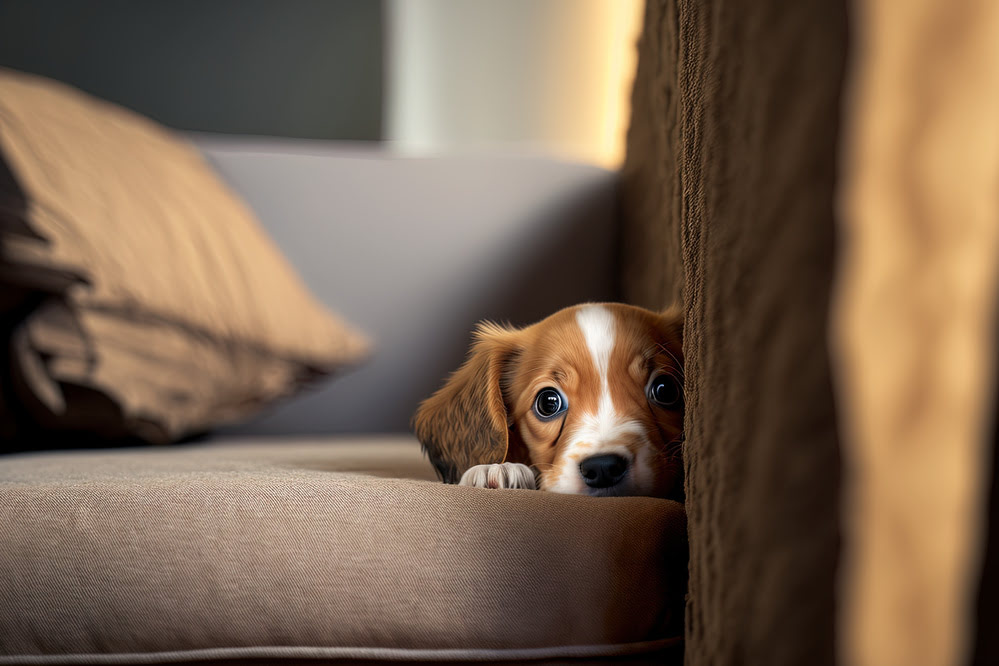Leaving puppy home alone for the first time - Never more than an hour
Leaving your puppy home alone for the first time can be an anxious experience for any puppy parent. It is best to start with small amounts of time when leaving, such as 15 minutes or even half an hour.
When leaving puppy alone, it is not advised to leave him/her without supervision for more than an hour. Extended periods of unsupervised time can be too difficult and overwhelming for a young puppy and uncomfortable with separation anxiety.
Proper preparation such as setting up a puppy playpen or providing comfort objects like blankets and favourite toys help make it easier on puppy when they are left alone.
Provide Companionship for Puppies - Avoiding Separation Anxiety

Puppies and even adult dogs can become bored, experience separation anxiety, or refuse to accept the fact that they have to be alone when their owners are away. To ensure their puppy (or dog) is not struggling with being alone, enlisting the help of a pet sitter can go a long way in providing peace of mind.
Remember, puppy-proofing and taking time to exercise and interact before leaving is critical. Furthermore, if possible, have people pop by during the day when puppies are young so they can learn to tolerate alone time.
Even if puppy-sitters may not be around every day; regular visits throughout the week will help them adjust better.
Adding another furry companion to the home can go some way to alleviating separation anxiety in your existing dog too!
The Best Toys and Chews to leave your puppy alone with
Finding the right toy or chew to leave with your puppy when you’re away can be challenging. Not only do you have to select something that will keep them entertained and deflect attention away from their loneliness, but it also needs to be safe.
Toys made from natural rubber that resist puncturing and choking hazards are ideal for teething puppies and puppy-proofing during those long absences. Chews like bully sticks are great for puppy-proofing as well because of its hardiness and digestible material which prevents splintering.
Finding the perfect toy or chew from puppyhood will help puppy owners manage separation anxiety even when away for extended periods of time!
Create a Safe Confinement Area with Crate Training

Ensuring your puppy has a safe confinement area is key for their well being and safety. When you need to be away from the puppy for more than an hour or leave them home alone, keeping them confined to an area can provide them with a sense of security.
Utilizing crate training is the best way to create this safe confinement area; not only will it help with your puppy's house training alongside their puppy pads, but will give puppy a secure space of their own when they need it most - aiding them with rest & relaxation.
Providing puppy with a contained area can also help protect furniture and other household items that puppy could potentially chew on while unsupervised during long periods alone.
What to do if you work or attend school full-time
Puppy parenthood is a full-time job that can become challenging when working or attending school full time. For puppy parents, this means having to find someone who can help look after their puppy when they're away.
Many puppy parents opt for dog sitters, or even dog walkers, as it allows their puppy to have another person around when they’re alone. A dog sitter will come to your house, multiple times a day if need be, and spend time with young dogs, providing food and water, taking them outside for playtime and walks. Meanwhile, a dog walker can take the puppy out for walks along certain routes at specific times of the day during those times you are unable to provide companionship or exercise.
It's important to research puppy care options carefully before committing so your puppy can get the best possible care while you manage your full-time duties.
Creating Puppy-Safe Surroundings
Creating puppy-safe surroundings should be a top priority for any new puppy parents, especially those who will have to leave their new puppy alone. As puppies are young and small, it's important to make sure there aren't any dangers around that could harm them - like exposed wires, sticks or sharp items.
Puppies alone also needs careful consideration as leaving an unsupervised puppy can be dangerous if they get into places they're not supposed to.
House training is also important; placing puppy pads in strategic places will help designate the areas in your home where you puppy can do its business without creating accidents around the house. It will also help when they eventually move to pooping outside and can help you get a sense of how often they'll need to go.
It is essential for puppy parents to create puppy-safe surroundings so their furry friend can develop safely and with love.
Top Tips for Leaving an adult dogs home alone while you're at work

Leaving a pet home alone while you're at work can be challenging and worrying, especially if it’s an adult dog. Fortunately, there are several things you can do to make the experience easier for both of you.
Adding pet cameras to the home could be helpful in monitoring your pet and checking-in throughout the day. Secondly, consider providing some puzzle toys or a chew toy as this will help pass time for easily bored social animals such as dogs. If possible, bring them along with you to work, place them in doggy day-care or have someone take care of them for a few hours during your work day.
With these measures in place your pet should feel happy and comfortable at all times when left home alone!
Come Home During Your Lunch Break
If you're fortunate enough to work close to home, taking a break during your lunch hour to come home and check on your puppy can make a huge difference for both you and your pup. If the puppy is left alone all day, it can cause them high levels of stress, especially in puppies younger than 6 months old.
By taking just a few minutes out of your day to go home and let them out, give them fresh water or food, get rid of excess energy by playing with them; these short but necessary activities will benefit them greatly! This will also give you peace of mind knowing that your puppy has been given adequate attention from their family member.
FAQ
How often can I leave my puppy alone?
Too much alone time can negatively impact puppies’ development, so it’s important to consider how often you leave your puppy alone. When determining the best amount of time away from home for your pet, always consider the individual pup and his/her age.
Very young puppies under twelve weeks are usually not able to cope with any form of separation, meaning if you have a very young pup he/she should never be left home alone for an extended period of time. As puppies get older, their ability to adjust to being alone improves.
That said, leaving puppies that are below six months of age home alone for more than four hours is generally not recommended due to their need for this important bonding and learning period.
How can I tell if my puppy is feeling anxious when I leave them alone?
An anxious puppy may exhibit a variety of behaviors when left alone, such as barking, pacing, whimpering, or attempts to escape the area. They may be more destructive than usual with items such as furniture or toys, and general hyperactivity can be a sign of anxiety when separated from their owner.
To determine if your pup is feeling overwhelmed without you around, look for cues such as excessive drooling and trembling, which often accompany feelings of fear or stress. Furthermore, it wouldn't hurt to check on them periodically when leaving them alone so that they don't develop an unsafe level of anxiety.
Be sure to reassure them in your calmest voice each time you return home after being out and to provide plenty of mental stimulation throughout the day in order to prevent any signs of stress-related isolation.

What can I do to help my puppy feel less anxious when I leave them alone?
To help your puppy feel less anxious when you have to leave them alone, the first step is to build trust and an enjoyable ambiance while they are with you. Always give positive reinforcements like treats whenever they obey commands and rewarding their good behaviour.
It's important to keep a consistent routine so that they know what to expect both when you're gone and when you're present. Setting up the environment beforehand with games, interactive toys and lots of comfort items, such as their bed and pillow, can also go a long way in keeping your pup from feeling alone, even if it's only for a short period of time. Gradually increasing the length of time that they're left on their own will signal to your pup that short separations are normal, safe and not something to be feared.
What is the best way to crate train my puppy?
Crate training your puppy is an important part of establishing a safe and comfortable home for them. The first step of crate training is to pick a crate that is the right size for your puppy. Make sure that they are able to easily stand, turn around, and lie down comfortably inside the crate.
Place toys and treats inside the crate as a reward during training. It's also important to give them time outside the crate for exercise and bathroom breaks. To begin with, you should only leave your puppy in their crate for brief periods of time while you are in earshot so they're aware they are not alone. Gradually increase the length of time they remain crated as they gain more comfort and trust in the environment.


















Share:
January Is National Train Your Dog Month: Here's What That Means
Ways to Celebrate National Love Your Pet Day